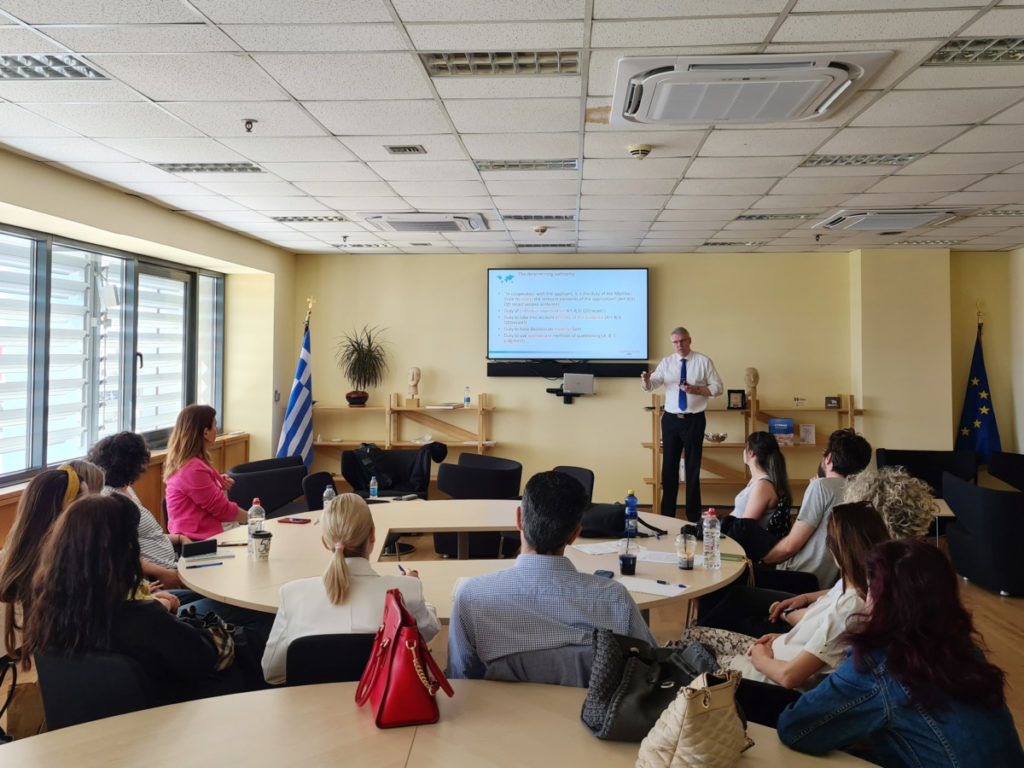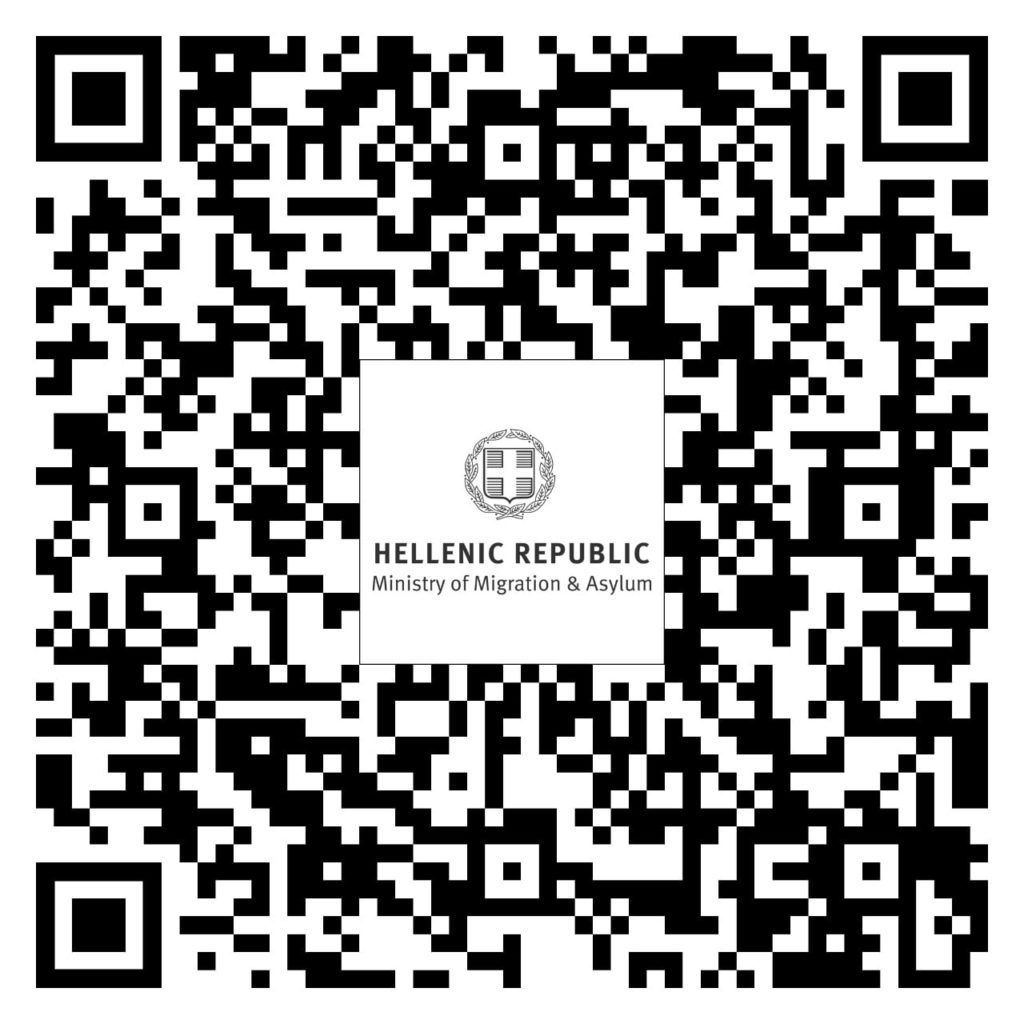Speech by the Minister of Migration and Asylum, Mr. Notis Mitarachi at the working dinner of the 2nd European Conference on Border Management
The importance of European border management in the context of a comprehensive European Union policy on the migration issue was underlined by the Minister of Migration and Asylum, Mr. Notis Mitarachi, during the opening of the working dinner at the 2nd European Conference on Border Management, which is held in Athens.
Mr. Mitarachi welcomed the representatives of EU Member States’ governments and European Economic Area countries, European Commissioners and heads of European Agencies such as Frontex and Europol. Mr Margaritis Schinas, the Vice-President of the European Commission, who is responsible for Promoting our European Way of Life, also addressed the meeting.
Mr. Mitarachi stressed the need for a New Pact on Migration and Asylum which should address three challenges: a) Limit irregular arrivals in the European Union. That is primary flows, which inevitably will reduce secondary movements. b) To provide tangible solidarity among Member States; and c) Provide legal pathways, both for humanitarian and work-related purposes.
“Nowadays, we are witnessing a constant increase in the number of irregular migrants arriving in the EU. We are witnessing efforts by third states to instrumentalise migration. It is -at this point- crucial for Europe to decide what type of migration policy we want, and more specifically what type of border management we need” Mitarachi said.
For his part, the Vice-President of the European Commission, Mr. Margaritis Schinas noted “The European Council clearly recognised migration as a European challenge that requires a European response. This is the right and only approach. Only a European response made it possible to defeat the hybrid attack by Belarus in 2021. Only a European response made it possible to welcome millions of Ukrainian refugees fleeing Putin’s bombs in 2022. And only a European response will allow us to manage migration properly. Taking advantage of the potential of legal migration. And reducing irregular migration in a humane and effective manner. The lesson learnt is clear: we need to act together. As proposed by the Commission, EU Leaders agreed that the EU needs to act on two tracks: legislative and operational.”
The video from Mr.Mitarachi’s and mr.Schinas’ speech:
The full statement of the Minister of Migration and Asylum, Mr. Notis Mitarachi:
“On behalf of the organizers of the 2nd European Conference on Border Management, namely Austria, Lithuania, Poland and Greece, allow me to welcome you to Athens.
Thirteen months after the Vilnius Conference, the issue of border protections has been raised in importance, within the European institutions. Making this Conference even more timely.
Dear Colleagues,
It has been an honor to serve as Member of Council for three years, in the JHA formation.
Together, we have discussed time and time again the challenge of migration.
It is clear, that a new Pact on Migration and Asylum is much needed. And needed urgently.
A pact that, in our view, should address three challenges:
- Limit irregular arrivals in the European Union. That is primary flows, which inevitably will reduce secondary movements.
- Provide tangible solidarity among Member States
- Provide for legal pathways, both for humanitarian and work-related purposes.
Dear colleagues,
In this same hotel, two years ago, Cyprus, Italy, Malta, Spain and Greece formed the MED5 Group.
Τo ensure a fair balance between responsibility and solidarity in our migration and asylum management system.
A crisis resilient system can only mean a balanced system. This is the lesson we learned post-2015.
First reception countries are entitled to tangible solidarity in the face of continuous pressure.
But clearly that angle, the angle of solidarity, must be seen in conjunction with the level of responsibility for each Member-State.
Now, this level of responsibility, cannot be seen in isolation from the level of irregular flows.
And this is the aim of the Conference: How do we reduce the level of irregular flows.
Nowadays, we are witnessing a constant increase in the number of irregular migrants arriving in the EU. We are witnessing efforts by third states to instrumentalise migration.
It is -at this point- crucial for Europe to decide, what type of migration policy we want, and more specifically what type of border management we need.
Clearly we need to offer asylum to people in need of protection, but in an orderly way. As we all did, with Ukraine, following the unprovoked attack by the Russian Federation. Providing for a Common European Protection Space. What some of us did, with Afghan evacuees, following the seizure of power by the Taliban.
Today, unfortunately, instead of us being proactive in asylum management, it is the people smugglers that “sell” places in our societies. Not to those most in need, but to those that pay the fees.
We need us to open up legal and safe pathways. But we need to stem irregular flows, flows which almost all come to the EU through transit countries. And not direct from places of risk of prosecution.
Some argue that there is a so-called unconditional right of third country nationals to access the territory. But such a right does not exist in international or European Law. It certainly does not exist in the Geneva Convention.
European law specifically provides for “safe third countries” and the legal consequences that arise from such determination.
Worth noting that the Geneva Convention also places obligations to asylum seekers, to abide with. Obligations that many times are forgotten in the public debate.
Irregular arrivals at the borders is not a new phenomenon. What is new is the level of arrivals, since 2015 especially. What is new for Europe is the instrumentalization of migration, as we witnessed it in Evros, Belarus, Melilla. Our border policy must acknowledge and respond to these challenges.
We need enhanced border protection and surveillance infrastructure. In our view, including fences. A position 16 Member States supported at Vilnius.
Obviously, any failure to secure the external border, erodes the freedom of movement within the Schengen area. Protecting the external borders needs to focus on dismantling smuggling networks.
In this context, I want to refer to the role of NGOs. We fully support the role of NGOs in providing assistance and services to migrants present in the country. Our Ministry has long standing relations with international and national NGOs active in social work, interpretation and so on. But we fully oppose the involvement of NGOs in assisting irregular border crossings, especially when such activities are undertaken parallel to smugglers.
There is a very fine, but bright line in rare cases between NGOs and smuggling rings. When such line is crossed, justice has to step in and investigate.
Another key related aspect we need to tackle is our return policy. The European Union needs to place its weight collectively behind implementing returns. A low level of returns of those not entitled to protection undermines the credibility but also more generally the logic of our asylum system.
The appointment of a Returns Coordinator is a positive step. So is the call by the President of the Commission to open the discussion on mutual recognition of return decisions. But more importantly, we need to align our legislation with the aim of implementing returns. We need to consider issues such as the right of migrants with rejected asylum applications to file unlimited subsequent applications, in order to block returns.
Of course, implementing returns means implementing our existing readmission and return agreements and arrangements with countries of origin and transit. Like the EU/Turkey 2016 Joint Statement. Note that since March 2020 Turkey refuses to accept returns.
We need to use all conditionalities and leverage tools, including visa-related measures, to achieve a higher return rate. Obviously, stemming irregular crossings of the external border means less secondary movement. A point that divides us needs to come to a point that unite us, as the need of protecting our external border from irregular arrivals.
Finally, preventing a crisis constantly requires adequate funding. We need to secure funding, but also flexibility in funding rules. For example OPEX is key, to provide for services.
Dear colleagues,
Today and tomorrow, we have the opportunity to discuss a shared vision on border management, as well as the proposed Joint Declaration drafted by the organizers.
A declaration following from the declaration signed by 16 Member-States in 2022, in the 1st European Border Management Conference in Vilnius, Lithuania. In recognition of the success of our first Conference, allow me in the future to refer to the European Border Management Conference as “the Vilnius Process”.
Thank you.”




